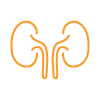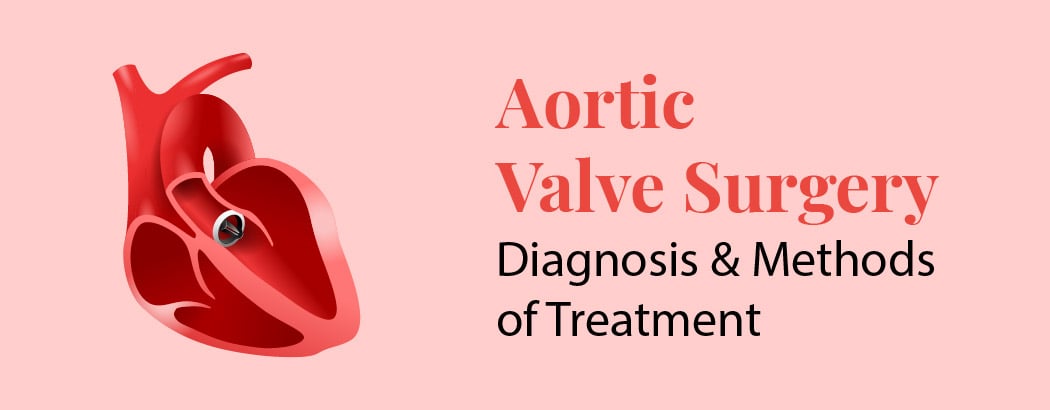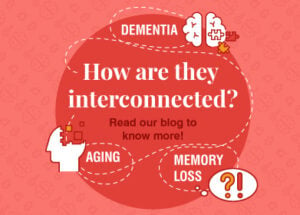What are the Symptoms and Causes of Kidney Problem
February 10, 2025

The kidney is the organ that helps us excrete waste products from our bodies to keep us healthy and fit. When a kidney loses its ability to filter the waste from our body, it accumulates dangerous amounts of waste in our body. As a result, the body’s chemicals may get out of balance.
There are still millions of people who don’t know that they have various types of kidney diseases, and this is why it is known as the “Silent Killer.” Most of them don’t have the faintest idea of the disease until it is advanced. As a result, people often get checked for blood pressure, sugar, and cholesterol levels but ignore a simple test to find out about unidentified kidney problems called the creatinine test done in their blood.
Warning Signs of Kidney Problems
Only a confirmatory test can be a definitive way to determine a kidney disease, though there are some early warning signs.
- Swelling of Feet, Ankles, or Legs: You will start noticing Edema at sites that pit on applying a lot of pressure. This is known as Pitting Edema. As the kidney starts failing, there is Sodium retention in your body that causes swelling in the shin and ankle portions of the body.
- Periorbital Edema: This is one of the earliest signs of kidney disease. It denotes the swelling around the eyes caused by fluid accumulation in the cells or tissues. This is most commonly seen in people who have lost a significant amount of fluid via the kidney.
- Decreased Appetite: Secondary to the accumulation of Urea, creatinine, and acids, the appetite of the individual decreases drastically. As kidney disease advances, there is a sense of changed taste. This is often said to be metallic by the patients.
- Early Morning Nausea and Vomiting: Another sign of worsening renal functioning is the early morning sensation. This also directly affects the appetite of the person.
- Anaemia: A person might start to look very pale without any sign of physical loss of blood. This is one of the most common symptoms of kidney disease. This also causes weakness and fatigue.
- Foamy Urine or Blood in Urine: Excessive frothiness in the urine indicates the presence of protein in the urine. When the filtering mechanism of the body falters, the protein blood cells start to leak out into the urine.
- Dry and Itchy Skin: Dry and itchy skin is a sign of advanced kidney disease. When the kidney fails, toxins tend to accumulate in the body, leading to the sensation of itching.
- High Blood Pressure: Anyone diagnosed with hypertension is prone to having a detailed workup of renal functions. As the kidney function deteriorates, sodium and water retention leads to high blood pressure.
- Fatigue: Healthy kidneys make a hormone called erythropoietin or EPO that helps make the oxygen-carrying red blood cells. When the kidney fails, the EPO cells produced are less in number. With fewer red blood cells, the muscles and brain tire out very quickly.
- Feeling Cold: Anemia can make you feel cold even in a very warm room.
- Swollen Face: Failing kidneys do not remove the extra fluid that builds up in the body, which causes swelling in the face.
- Food Tastes like Metal: It has been said so by kidney failure patients that food tastes mostly like metal for them.
What can Cause Damage to your Kidneys
Kidney damage can result from chronic conditions, lifestyle choices, and harmful habits.
1. Chronic Health Conditions
- Diabetes & High Blood Pressure: Leading causes of kidney disease.
- Autoimmune Disorders: Conditions like lupus can trigger kidney inflammation.
- Infections & Obstructions: Repeated kidney infections, stones, or urinary blockages can impair function.
2. Lifestyle and Diet
- Excessive Painkillers: Overuse of NSAIDs can harm kidneys.
- High Salt & Processed Foods raise blood pressure and increase disease risk.
- Dehydration: This can lead to kidney stones and urinary issues.
- Excess Protein & Sugar: Strain kidney function and contribute to diabetes.
3. Harmful Habits
- Smoking & Excess Alcohol: Reduce kidney efficiency and raise blood pressure.
- Sedentary Lifestyle & Poor Sleep: Linked to obesity, high BP, and kidney stress.
Protect your kidneys by staying hydrated, eating a balanced diet, avoiding harmful habits, and managing health conditions effectively.
What are the different stages of a kidney problem?
There are 5 stages of a kidney problem. Doctors usually determine the stage of the kidney problem using glomerular filtration rate (GFR). The stages of kidney failure are:
- Stage 1 – normal or high GFR (GFR > 90 mL/min)
- Stage 2 – Mild CKD (GFR = 60-89 mL/min)
- Stage 3A – Moderate CKD (GFR = 45-59 mL/min)
- Stage 3B – Moderate CKD (GFR = 30-44 mL/min)
- Stage 4 – Severe CKD (GFR = 15-29 mL/min)
- Stage 5 – End Stage CKD (GFR <15 mL/min)
Treatment & Management
Treatment for kidney problems depends on severity and may include lifestyle changes, medications, dialysis, or a kidney transplant.
- Lifestyle Changes: A kidney-friendly diet, regular exercise, blood sugar control, and quitting smoking can slow disease progression.
- Medications: These may include drugs to control blood pressure, phosphorus levels, and red blood cell production.
- Dialysis: Required when kidney function is severely impaired, either through hemodialysis (blood filtration via a machine) or peritoneal dialysis (internal waste removal).
- Kidney Transplant: The best long-term option for kidney failure is replacing a damaged kidney with a healthy donor kidney.
Treatment plans vary based on disease stage, underlying cause, and individual health needs. Consulting a doctor ensures the best approach.
How Can I Check My Kidney Problems at Home
- Simple Urine Test: Albumin is not usually present in urine. This test kit helps find out the presence of albumin in urine, which is a sign of kidney failure.
- Smartphone-Enabled Home Urinalysis Device or Dip.io test: This device from a smartphone helps the users conduct a urinalysis at home and share the results with their doctors.
- Clinical Symptoms: The colour of the urine, presence of blood, or foul odour can be monitored along with a regular blood pressure chart.
Prevention
Reducing the risk of kidney disease involves maintaining a healthy lifestyle. This includes controlling blood pressure and blood sugar, eating a balanced diet, staying active, avoiding smoking, and using pain relievers responsibly. Regular health check-ups can help detect early signs of kidney issues.
When to See a Doctor
Seek medical advice if you experience persistent symptoms like swelling, fatigue, or changes in urination. Early diagnosis through blood and urine tests can prevent complications and slow disease progression. If you have risk factors such as diabetes or high blood pressure, discuss routine kidney function tests with your doctor.







